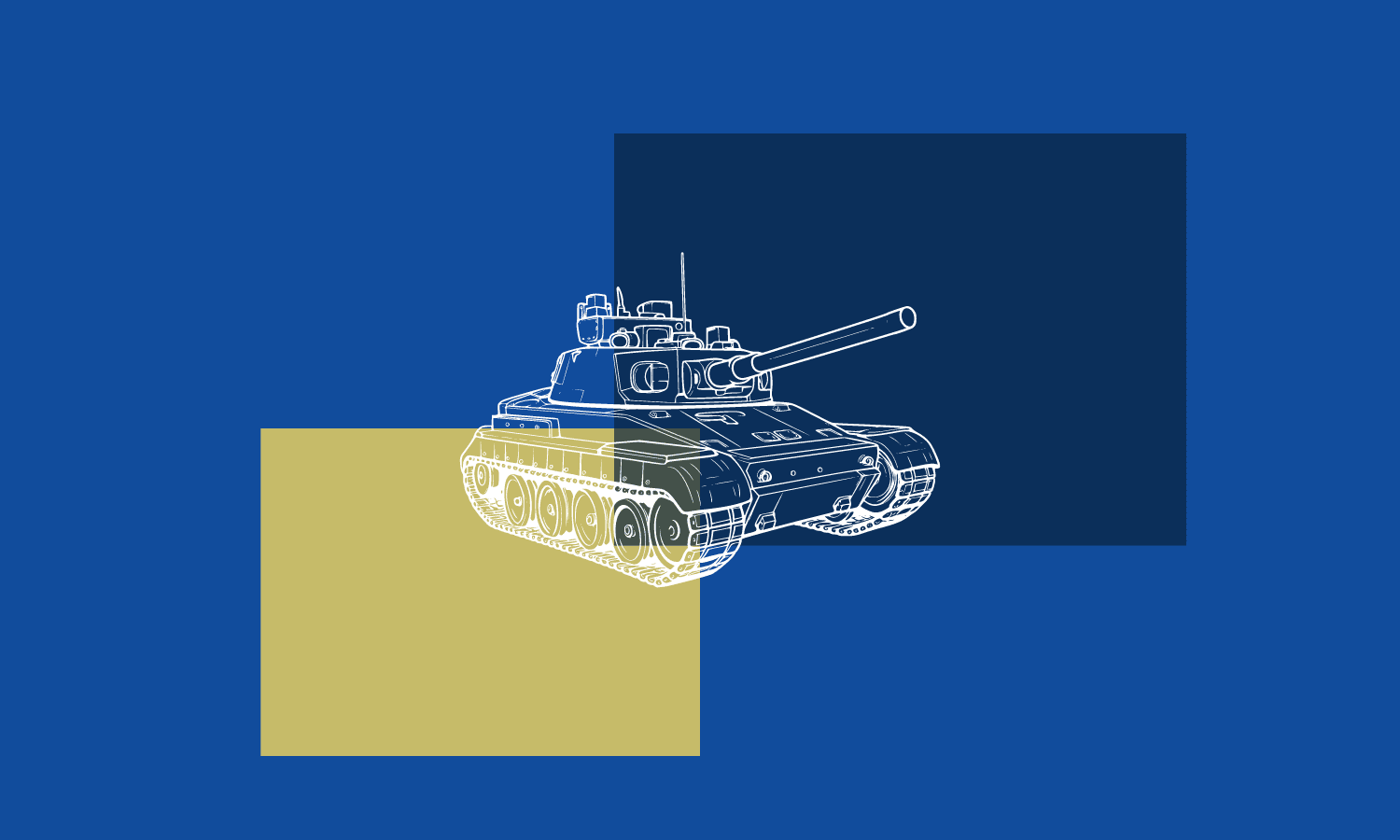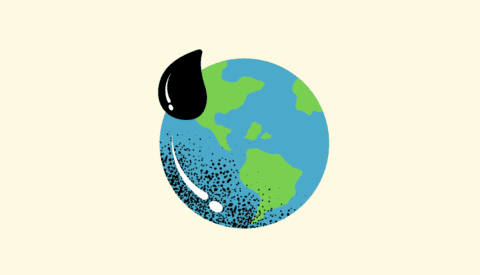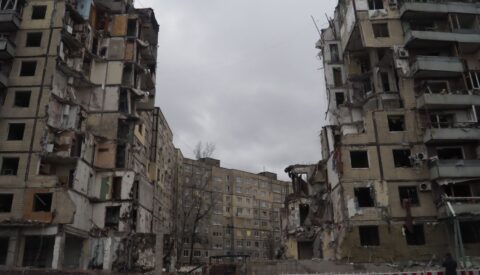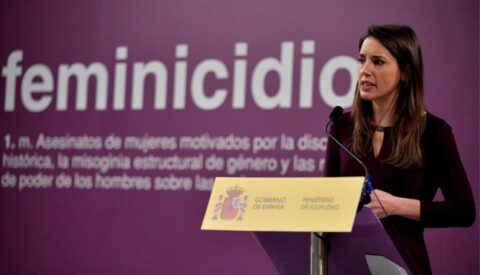The EU Army? It May Finally Be Time For Europe To Commit To A Joint Military
Russia's annexation of Crimea, in 2014, warned Europe over a changing geopolitical scenario and the bloc's vulnerability in terms of security. Now, the war in Ukraine has pushed EU member states to strengthen their defense policies and reopened the debate over the need for a European army.
Article
2024

Article
The Russian threat goes beyond the Ukrainian borders. Russian President Vladimir Putin’s intimidation about reprisals against those who help Ukraine or about the use of nuclear weapons has made a vulnerable Europe react in terms of security. It has also made EU member states (the majority, at least) work together in the search for consensus and solutions to act as a united front and defend themselves against Putin’s Russia — and against everything that could come after.
Major steps have been taken in the field of defense. Germany has made a U-turn in its defense policy, allocating 100 billion euros of additional spending to defend Ukraine as soon as the Russian invasion began, and recently requesting that the country’s share of military spending be 3% of GDP, that mandatory military service be restored and that its army be modernized.
Denmark, which had an opt-out policy in this matter, has joined the European Defence Agency. Finland and Sweden are now members of NATO. And the European Peace Facility has so far allocated 3.6 billion euros in different aid packages to Ukraine.
Also, last week, Andrius Kubilius became the European Union’s first first-ever «defense commissioner», though it isn’t exactly clear what his role or powers will be.
We live in an era of complex security threats, a moment of decisive geopolitical change that shows that the rules and institutions that have been governing us since the World War II — based on peace and cooperation — no longer work. But above all, says José María de Areilza, secretary general of the Aspen Institute Spain, it exposes the vulnerability of the European Union and its 27 members.
«Europe is vulnerable to Russia energy-wise, to China industry-wise, and we are dependent on the United States security- and technology-wise», he said
A changing world
The United States has come to Europe’s defense four times: in two world wars, the Balkan wars and now helping Ukraine against Russia.
«Europe has to adapt to a world it is not prepared for, which revolves around security», de Areilza says. «We are entering a geopolitical era in which security is the main demand expressed from national or, at most, regional perspectives».
«We have to start seeing the world through the prism of security», he continues, adding that Europe must also prepare and gear up for defense situations typical of the 21st century, especially «now that the United States’ priority is no longer Europe but China».
Europe must overcome the taboo that security and defense are national competences
Given this situation, the debate has been reopened as to whether Europe needs to form its own army. «The European Union cannot rely on the United States anymore to guarantee its security in the face of severe crises such as the invasion of Ukraine. And [it must also] overcome the taboo that security and defense are national competences», De Areilza explains; because «in today’s world, it only makes sense to exert them on a European scale».
Jorge Dezcallar, Spanish ambassador and first civilian director of the National Intelligence Centre (CNI), agrees with this point of view, affirming that the EU must develop «an autonomous military force but compatible with that of NATO, which grants us the protection of the American nuclear umbrella».
Along with the United States, the other two NATO countries that have nuclear weapons are France and the United Kingdom, although their deterrence capacity is not comparable to that of the United States.
Under the NATO umbrella
The world’s growing geopolitical tensions have led nuclear powers to develop plans to modernize their arsenals, as the Stockholm International Peace Research Institute (SIPRI) recently pointed out in its annual assessment of the state of armaments, disarmament and international security.
«Never since the Cold War have nuclear weapons played such an important role in international relations», says Wildred Wan, director of the SIPRI Weapons of Mass Destruction Programme. This is a worrying situation, especially if we take into account that Russia and North Korea are among the nine countries with nuclear weapons, along with Israel, China, India and Pakistan.
Not being one single army isn’t necessarily an obstacle
Europe urgently needs to act as a block and gain independence, especially in matters of security and defense. «What we have to do, like what we do within the framework of NATO, is to be able to operate together; to be interoperable, to be able to deploy and deter together», says José Ignacio Torreblanca, director of the European Council on Foreign Relations (ECFR) in Madrid. For him, «not being one single army isn’t necessarily an obstacle».
«In NATO, there is an integrated command that means that a German unit can be commanded by an American general. [This way] NATO has functioned and fulfilled its deterrent function effectively», Torreblanca says.
Indeed, the cornerstone of Europe’s defense is NATO; an alliance in which, in addition to the majority of European countries, Canada, the United States and Turkey are also members. Its operation is based on the «principle of collective defense», which means that all its members will defend whoever has been attacked (something that has only been carried out in practice following the 9/11 terrorist attacks in 2001 on U.S. soil).
Increased spending
But this principle does not imply the existence of a NATO army. And in fact, there is none. This defense is therefore a matter of national sovereignty with the soldiers belonging to the armies of the different member states.
This is where one of Donald Trump’s main complaints about the organization lies: the disproportionate investment in collective defense. The aim of the Treaty is for each country to contribute 2% of its GDP. Historically, very few have. But that has changed due to the war in Ukraine: in 2024, 18 countries reached that 2% (15 more than in 2014, when Russia annexed Crimea). In 2023, European allies and Canada also increased their defense spending by 11% compared to the previous year, according to the latest NATO Annual Report (2023).
The EU has also increased its defense spending during this period. Data from late 2022 indicated that total European spending peaked at 214 billion euros ($237,5 billion) in 2021, 6% more than in 2020, marking the seventh consecutive year of growth (the annexation of Crimea was a warning).
And in 2022, the European Commission committed 500 million euros ($555 million) to encourage the common acquisition of defense equipment between EU member states. Not only that, but spending on equipment and research and development has increased by 16% to reach a record 52 billion euros ($57 billion).
A common voice
«It’s not about spending more, but about spending better», Dezcallar says. He argues that Europe must «favor our defense industry, buy European products, seek economies of scale, interoperability», which is something that Europe will not be able to achieve until we have «a common foreign and defense policy. Without it, everything else is not possible».
The EU itself is well aware of the need to strengthen this aspect, which would not be in vain. At the 2022 Conference on the Future of Europe, it was proposed that the EU improve its capacity to make quick and effective decisions, in particular in the Common Foreign and Security Policy (CFSP), speaking with one voice and acting as a truly global actor.
That is precisely one of the aspects Dezcallar emphasizes: «Europe must be able to speak with one voice on foreign policy» and have «the ability to defend its positions, interests and values by force of arms, if necessary». He says «this is the only way we can become a player in the game of the great powers [and] have influence over issues that affect us».
The vast majority of EU citizens (81%) are in favor of a common defense and security policy
The creation of a common defense body requires the unanimous decision of the European Council, something that might turn difficult in an increasingly diverse and complex Europe. From a practical point of view, the best solution, as Torreblanca points out, is to focus on «being interoperable, having the same doctrines, common training, common material and weapons» in order to be able to deal with threats as effectively as possible.
For this reason, de Areilza says, «voters must be informed that the widespread pacifist mentality is very dangerous».
In this sense, Europeans are changing: the vast majority of EU citizens (81%) are in favor of a common defense and security policy, with at least two-thirds of people supporting the idea in each country, according to 2022 Eurobarometer data. Not only that, but 93% agree that countries should act together to defend European territory, and 85% think that defense cooperation should be increased at EU level.
This content is part of a collaboration agreement of ‘WorldCrunch’, with the magazine ‘Ethic’. Read the original at this link.






